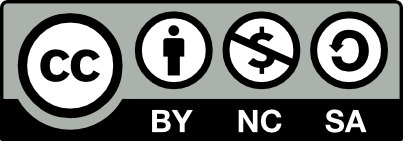
Copyright – Us, Use, and Users
Date: Tuesday, November 18, 2014
Time: 1:00 pm – 4:00 pm
Place: Stearns History Museum, 235 So. 33rd Ave. St. Cloud, MN 56301
REGISTER NOW!
(Deadline is November 12th….see your email for free admission promo code)
Need help? Send us an email.
You asked for it, CMLE has responded! We are proud to present this event on copyright, and are very excited to welcome the very capable, well-versed, Nancy Sims to our region. Nancy is well-known for her practical way of making copyright understandable, entertaining, and fun too!
Nancy will lead this customized workshop, which will focus on fair use and public domain as they relate to the use of existing materials. The information will be relevant to our own internal library uses, and relevant to assisting library users/teachers/faculty/and administration as well.
- First, Nancy will focus on fair use,then she will lead us through strategies and exercises in sharpening our fair use analysis skills.
- Pre-submitting some of your questions to Nancy’s Google form should help her target information to areas of particular interest, and help make the best use of time together. See your email for the link to the form.
- Q & A: There will be plenty of time throughout the event for asking questions.
- We will also spend time learning about free materials that are definitely, 100% legally usable by us and by our users – including public domain materials, open scholarship, and materials available via Creative Commons and other open licenses. Return to the workplace armed with bullet proof sources you can use immediately with no worries!
Why Come? Public, K-12, academic, and special librarians are often called upon to make decisions about copyright for themselves, their end users, and for their institutions. And, it is surprising how much all library types have in common around copyright. A 3rd-grade teacher seeking iPad activities for a science lesson faces many of the same issues as a college instructor who wants to share course readings with students online. A university archivist and a public library patron with an interest in genealogy may both benefit from knowing more about the public domain. And almost every facility that provides public copiers or scanners has at least one staff member with concerns about responsibility for others’ use of those facilities.
Feel free to also invite teachers, curriculum directors, tech integrationists, and others who may also be part of your copyright team. CMLE scholarships are readily available within the registration process for librarians and school media specialists from the central Minnesota region.
This session will provide information about general legal principles, professional ethics, and various practical approaches to copyright issues. However, no legal advice will be provided.
Learning outcomes for participants:
- Strengthen understandings of copyright law concepts such as fair use, the public domain, and open licensing.
- Explore personal and institutional orientations to risk and liability through a professional ethics lens.
- Develop confidence applying legal concepts to example situations drawn from real-world library and teaching experiences.
- Know how to locate and appropriately make use of “100% legal” materials for your own purposes, and those of people you support
Nancy Sims is a lawyer/librarian who is fascinated by the pervasiveness of copyright and licensing issues in modern life. She enjoys helping individuals, groups, and organizations understand how technology choices, copyright, and related legal and policy issues may affect their work, research, art, and everyday communications. She is currently the Copyright Program Librarian at the University of Minnesota Libraries, and also does consulting and speaking with library, education, and technology organizations and institutions around the country.
Sims Photo Credit: Matt Baxter

 How do you cite content you’re using from the web? Can you even use it in your work or on your website? If you need to modify it, can you? In today’s muddled online world, Creative Commons (CC) wants to be the answer to all your digital copyright questions.
How do you cite content you’re using from the web? Can you even use it in your work or on your website? If you need to modify it, can you? In today’s muddled online world, Creative Commons (CC) wants to be the answer to all your digital copyright questions.

